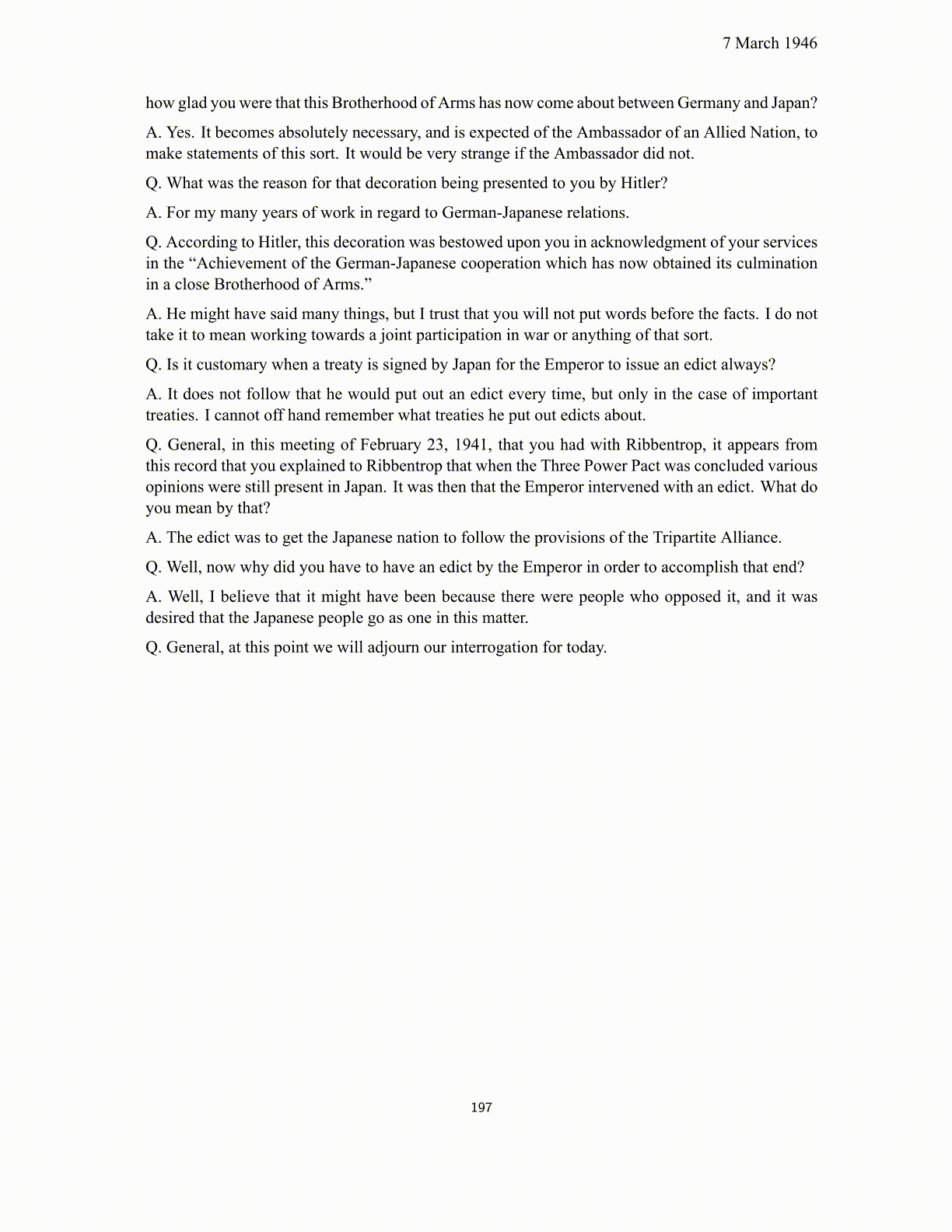
7 March 1946 how glad you were that this Brotherhood of Arms has now come about between Germany and Japan? A. Yes. It becomes absolutely necessary, and is expected of the Ambassador of an Allied Nation, to make statements of this sort. It would be very strange if the Ambassador did not. Q. What was the reason for that decoration being presented to you by Hitler? A. For my many years of work in regard to German-Japanese relations. Q. According to Hitler, this decoration was bestowed upon you in acknowledgment of your services in the “Achievement of the German-Japanese cooperation which has now obtained its culmination in a close Brotherhood of Arms.” A. He might have said many things, but I trust that you will not put words before the facts. I do not take it to mean working towards a joint participation in war or anything of that sort. Q. Is it customary when a treaty is signed by Japan for the Emperor to issue an edict always? A. It does not follow that he would put out an edict every time, but only in the case of important treaties. I cannot off hand remember what treaties he put out edicts about. Q. General, in this meeting of February 23, 1941, that you had with Ribbentrop, it appears from this record that you explained to Ribbentrop that when the Three Power Pact was concluded various opinions were still present in Japan. It was then that the Emperor intervened with an edict. What do you mean by that? A. The edict was to get the Japanese nation to follow the provisions of the Tripartite Alliance. Q. Well, now why did you have to have an edict by the Emperor in order to accomplish that end? A. Well, I believe that it might have been because there were people who opposed it, and it was desired that the Japanese people go as one in this matter. Q. General, at this point we will adjourn our interrogation for today. 197